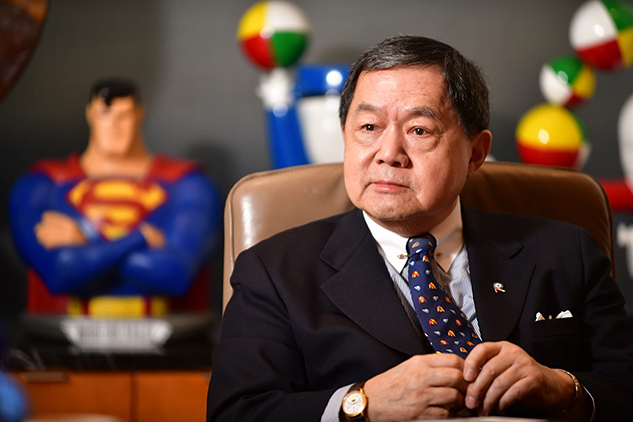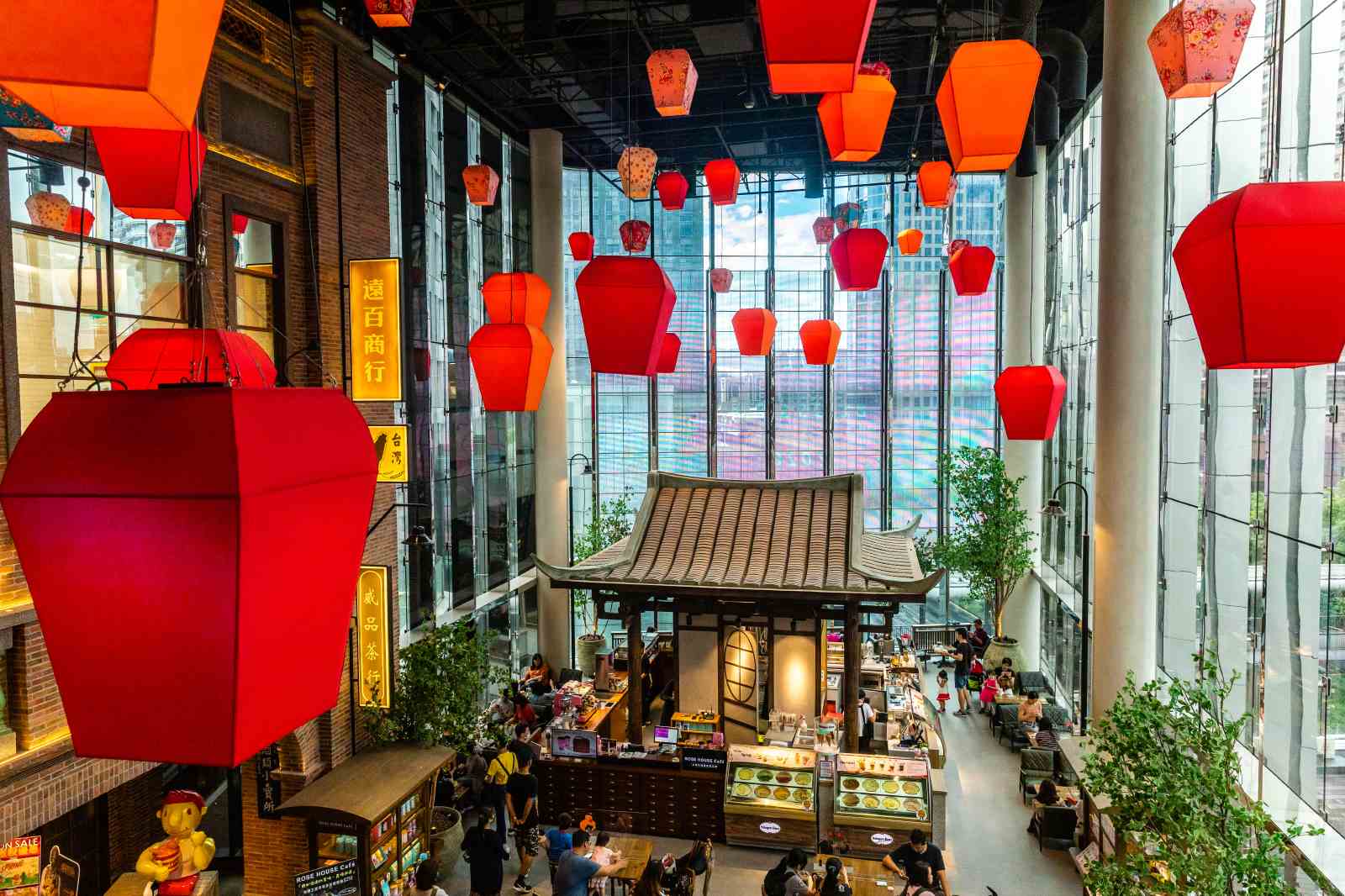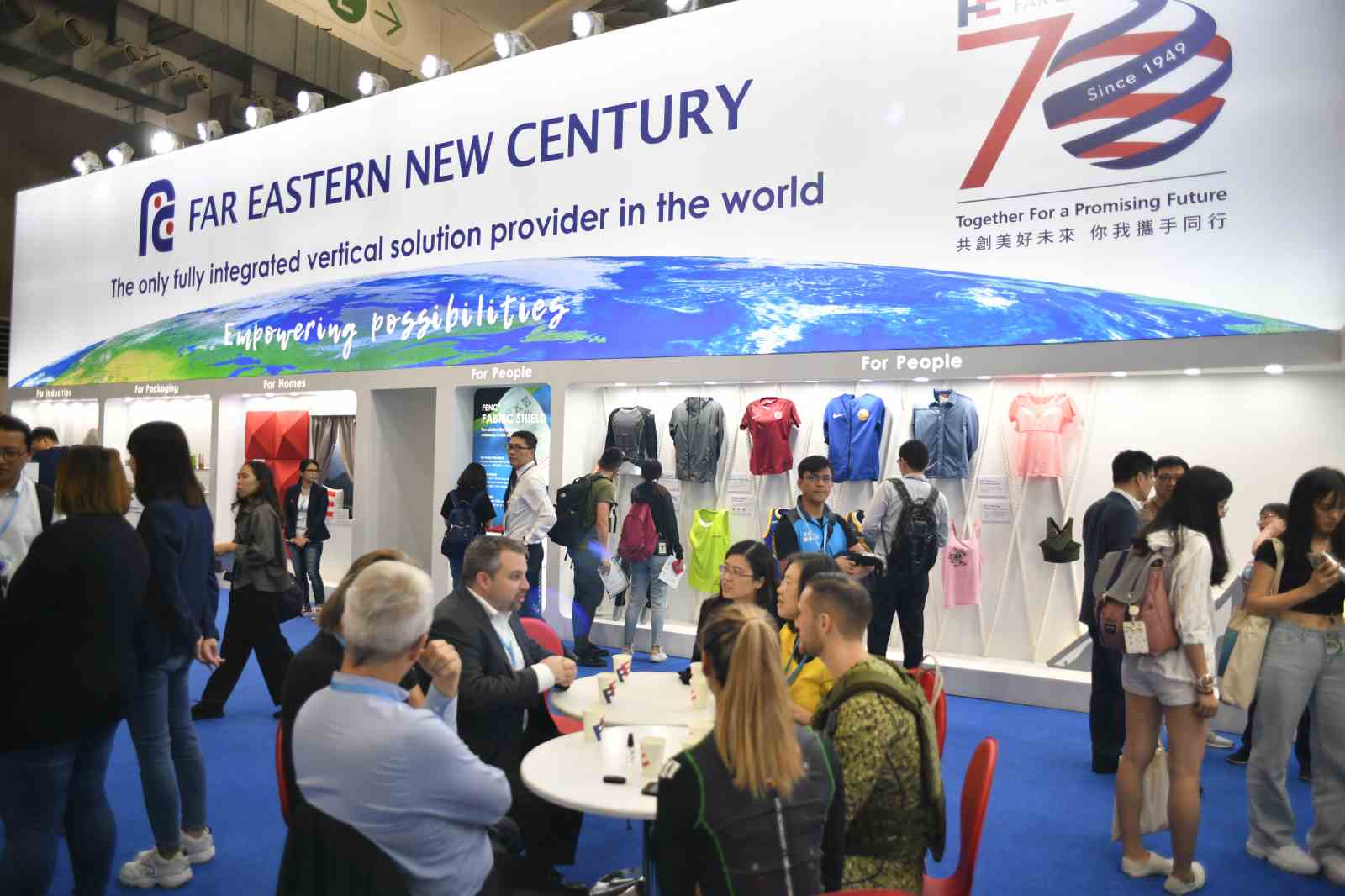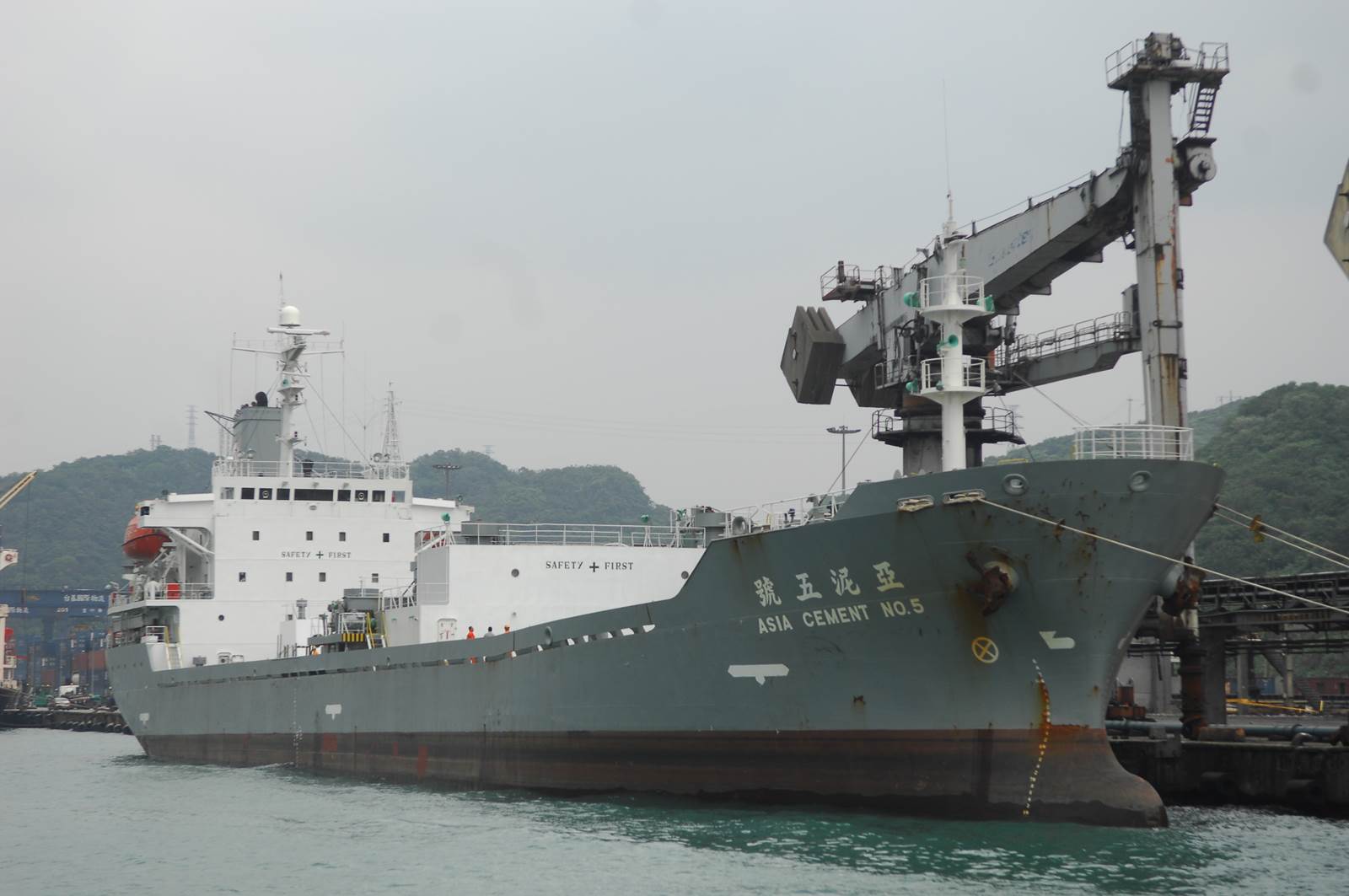The Head of Taiwan’s Most Diversified Conglomerate
How Douglas Hsu Commands 10 Business Divisions and 200 Companies

Source:Kuo-Tai Liu
The Far Eastern Group is Taiwan’s most diversified conglomerate, with 10 major business divisions and over 200 companies all under the direction of Chairman Douglas Hsu. While the last 20 years has seen many others rise and fall, Far Eastern has continued to grow, guided by CEO Hsu’s management approach of “stability.”
Views
How Douglas Hsu Commands 10 Business Divisions and 200 Companies
By Ching Fang WuFrom CommonWealth Magazine (vol. 698 )
In recent years, athletic apparel made from recycled plastic bottles has made waves at major competitions around the globe. Many people are unaware that the technical research and development for alleviating one of the planet’s environmental issues comes from Taiwan. Specifically, it was developed by a 70-year-old family business - the Far Eastern Group.
Founded in Shanghai and later rooted in Taiwan, the Far Eastern Group (FEG) boasts 70 years in the textiles industry, beginning with single-thread fiber. In CommonWealth’s first Taiwan Business Group Top 50 survey in 2000, the Far Eastern Group ranked ninth overall, with 34 companies generating revenue approaching NT$1.7 trillion.
Twenty years down the line, companies with roots in the textiles industry, including the likes of Tuntex, Hualon, and the Rebar Group, have gone under due to poor management or bad performance. Yet Far Eastern has continued to grow, with revenues approaching NT$4.6 trillion, ranking seventeenth overall and eighth in profitability.
Today the diversified business properties under the Far Eastern Group umbrella are integrally connected to the daily lives of the Taiwanese public.
Functional fibers come from Far Eastern New Century; mobile phones use Taiwan’s third-largest telecommunications network, FarEasTone; families on outings pass through electronic freeway tolls debited via Far Eastern’s eTag system; and there is even an over-50-percent chance that the plastic bottles discarded at the bottom of the trash bin will be returned to Far Eastern New Century to be remade into functional fibers.
Taiwan’s Most Diversified Conglomerate
How has FEG Chairman Douglas Hsu led over 200 subsidiary companies to become one of Taiwan’s top-10 most profitable conglomerates?
Compared to Hualon, Ruentex, and the Shin Kong Group, which also share origins in the textile industry, FEG’s top-10 divisions - spanning textiles to cement, construction, air cargo, petrochemicals, finance, department store retail, hotels, and telecommunications to medical education - are far more diversified.
Moving up the line, the development of the FEG’s assorted business divisions is closely interlinked.
Petrochemical industry development, situated upstream from the group’s textiles business, ensures its raw material supply; recently, in accordance with the recycling trend among major apparel brands, another source was tapped, namely recycling. The cement business, with the Asia Cement Corporation (ACC) at its core, has also developed air cargo and construction businesses. Department store holdings are also downstream from textiles and apparel; meanwhile, the cash flow from department stores, big box stores, and retail operations works in synergy with the group’s financial businesses headed by Far Eastern International Bank.
Although the telecommunications business, formed in the wake of the 1996 liberalization of Taiwan’s telecom industry, is the FEG’s youngest business, it is consistent with FEG founder Yu-Ziang Hsu’s approach to operating textiles, cement, and petrochemicals businesses in the early period, namely to move in step with the nation.
“[This is about] the industries of large scale, enjoying policy support, that block all but a handful of competitors from getting in the door. This is the standard logic guiding conventional conglomerate operations,” says Ji-Ren Lee, Executive Director of the EMBA Program in the College of Management at National Taiwan University (NTU).
Preservation is difficult, but starting a business is fraught with complex difficulties. Over the last 20 years, how has Douglas Hsu set the foundation for such a vast business empire?
Stability over victory, unhurried approach
Douglas Hsu, 78, joined Far Eastern Textiles (renamed Far Eastern New Century in 2009) at the age of 38 as company president, and has been guiding Far Eastern’s prosperous course and entry into new territories ever since.
One of Douglas Hsu’s interests as a young man was scuba diving, an activity that places a premium on concentration and caution, with safety as the highest guiding principle. Guiding FEG’s more than 230 companies and 50,000 staff is like diving into deep, impenetrably dark water.
Every calculated breath is a component of long-term deployment. Everything must be thoroughly prepared before a move can be made. This year, the FEG’s two most visible businesses - department stores and telecommunications - both embody this unhurried management approach.
In 2003, the Far Eastern Group won the bid for 50 years of land usage rights in Section A13 of the Xinyi Planning Zone in Taipei. After a 16-year-long wait, during which time Shin Kong, Breeze, and Hankyu entered the field, and 13 department stores squeezed into the Xinyi District, the Far Eastern Department Store finally opened its doors in Section A13.
FarEasTone has long occupied third place in Taiwan’s telecom industry, unable to surpass Taiwan Mobile, operated by the Tsai family dynasty’s Fubon Group, in either number of users or profitability. Even the e-commerce platform friDay takes a distant back seat to competitor momo.
Observers familiar with the Far Eastern Group’s corporate structure relate that the FEG never takes risks with its business holdings, which span a broad spectrum. Further, while individual enterprises rarely lose money, on the other hand they are not high-profit, high-growth ventures; in fact, the vast majority of Far Eastern Group companies are neither first nor last in their class.
In the department store arena, they have never surpassed Shin Kong; in telecommunications, they cannot match Taiwan Mobile; and in mega box stores, they cannot beat RT Mart. While others are rapidly expanding, why is Douglas Hsu in no apparent hurry?
“I want to be able to sleep soundly at night,” quipped Hsu simply in an exclusive interview with CommonWealth.

“People say I’m too conservative, that, if I could double the business, why do I just run it at the single-magnitude level? It’s not that I don’t seek (high growth rates), but this isn’t my top priority. My stock price isn’t necessarily the highest, but it’s sustainable over the long term,” remarks Hsu.
U-Ming Marine is a prominent example. Looking over the company’s financial reports, it has not taken on debt exceeding 60 percent for years, and its long-term working capital ratio over the last five years has stayed somewhere between 130 and 170 percent. Meanwhile, as other shipping companies busily purchase new ships to expand their fleets, U-Ming has refrained from over-investment, embodying the financial structure typical of the Far Eastern Group.
Perhaps U-Ming’s relatively conservative financial constitution, compared to the average cargo company in this era filled with black swans, is actually an advantage for averting risk. On the day of our interview with Douglas Hsu, the top newspaper headline was that Singapore-based shipping firm Ocean Tankers, a unit of oil trader Hin Leong Trading, had applied to be placed under the management of a court-appointed supervisor due to plummeting oil prices caused by the coronavirus pandemic.
Sanguine Towards Sustainability in Textiles, Cautious Innovation
Circumspection was one of the defining characteristics of the spirit that FEG founder Yu-Ziang Hsu instilled in his enterprises, to which Douglas has added American-style “innovation.”
“Our company’s philosophy is ‘try new things.’ Choosing innovation and breakthroughs is very important,” he asserts.
The conglomerate’s textiles business division, headed by Far Eastern New Century, is Asia’s largest manufacturer of recycled PET plastic (R-PET). Despite having achieved this elevated status, buoyed by the environmental sustainability tide sweeping international brands, it has not slowed the pace of innovation. On the contrary, it has steadily increased its research and development outlay year after year.

Far Eastern New Century is a key international supplier of environmentally friendly fiber. Textiles is the Far Eastern Group’s foundational business.
“In the future, fiber shouldn’t be derived from petroleum, but from other sources like agriculture. Corporations must always set out from a sustainability approach,” Hsu states.
Far Eastern New Century pioneered the process for recycling marine thread to produce material for apparel and shoes. In addition, Fanny Liao, executive vice president of the Far Eastern Research and Development Center, notes that New Century has internally developed initial chemical recycling methods for turning old clothing into chemical fiber raw materials, and is actively seeking mergers and cooperative opportunities with outside entities.
Last year, in addition to investing over NT$300 million to acquire Phoenix Technologies, a U.S.-based recycling firm, to help with its technological upgrades, Far Eastern New Century vertically integrated its local production chain. Further, last year the company entered a technical cooperative arrangement with U.S. startup LanzaTech, pioneering methods to collect exhaust fumes from the iron smelting process, which are then fermented into alcohol and made into industrial fiber, thereby expanding artificial fiber technology not derived from petroleum.
A key figure for innovation is Douglas Jefferson “Jeff” Hsu, Douglas Hsu’s son. In 2015, the elder Hsu brought his son back from the United States to take on the new position of Chief Innovation Officer (CIO), as well as executive vice president of U-Ming Marine Transport.
Succession: 70-year-old ship changes course
Jeff Hsu stands out starkly among the scions of Taiwanese family businesses, having fought in Iraq as a U.S. Marine Corps infantry platoon commander for starters. To that he also boasts the distinction of holding a degree rarely seen in Taiwanese industry: a Master’s in Design Methods, Innovation & Design from the IIT Institute of Design in Chicago.
Hsu describes his skillset on his LinkedIn profile as follows:
“I build internal innovation cultures where designers, engineers, and traditional business operators can collaborate and thrive as a team. My end state is to create environments and organizations where leading edge creativity helps to redefine the competitiveness of the business.”
“We try to help the group speed up its digital transformation and modernizing operations,” stressed the younger Hsu in an interview. To progress on that path, a data analysis infrastructure is necessary. “For instance, cooperating with international partners to help U-Ming develop a fleet safety management system and reduce fuel costs - in some cases effectively yielding effective reductions of 20 percent,” he said.
However, Jeff Hsu spent four full years on U-Ming’s case alone. To pursue a 20-percent figure requires that the entire company’s approach must change in lockstep. This would be a major undertaking.

“We basically had to start from ground zero,”Jeff Hsu asserts, and the road to innovation transformation remains long.“A lot of practices like design thinking which are commonly used in western companies are not so commonly used here in Taiwan or in Asia. It requires a lot of communication,”he says.
The younger Hsu candidly admits that the biggest challenge facing Far Eastern’s innovation is conservative thinking inside the company. Therefore,“It also takes us longer to get them to adapt and take on new ideas or technology. They have been successful for 60 years, but the things that made them successful for the past 60 years won't necessarily make them successful tomorrow.”
Have you read?
♦ Taiwan Top 50 Business Groups: 20 Years Later, Who’s In and Who’s Out?
♦ Taiwan’s Top 50 Performers: IC Design Leads the Pack Thanks to China’s 5G Potential
♦ TSMC Fab in US Part of Second Wave of the Trade War: Industry Insiders
♦ COVID-19: How Taiwanese companies are rethinking 2020
Translated by David Toman
Edited by TC Lin
Uploaded by Judy Lu






